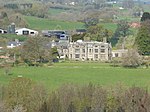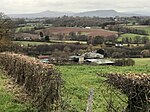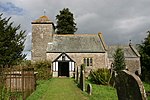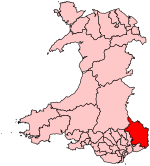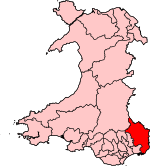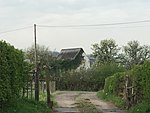St Dingat's Church, Dingestow
14th-century church buildings in WalesChurch in Wales church buildingsGrade II* listed churches in MonmouthshireHistory of MonmouthshireThomas Henry Wyatt buildings

The Church of St Dingat in Dingestow, Monmouthshire, Wales, is a parish church dating from the 14th century. It is dedicated to Saint Dingat or Dingad, a 5th-century Welsh saint. The church was almost completely rebuilt by Thomas Henry Wyatt in 1846 and further renovated by Richard Creed in 1887–1888. It is an active parish church and a Grade II* listed building.
Excerpt from the Wikipedia article St Dingat's Church, Dingestow (License: CC BY-SA 3.0, Authors, Images).St Dingat's Church, Dingestow
Tŷ Brith,
Geographical coordinates (GPS) Address Nearby Places Show on map
Geographical coordinates (GPS)
| Latitude | Longitude |
|---|---|
| N 51.7897 ° | E -2.7884 ° |
Address
Tŷ Brith
NP25 4DP , Mitchel Troy
Wales, United Kingdom
Open on Google Maps



